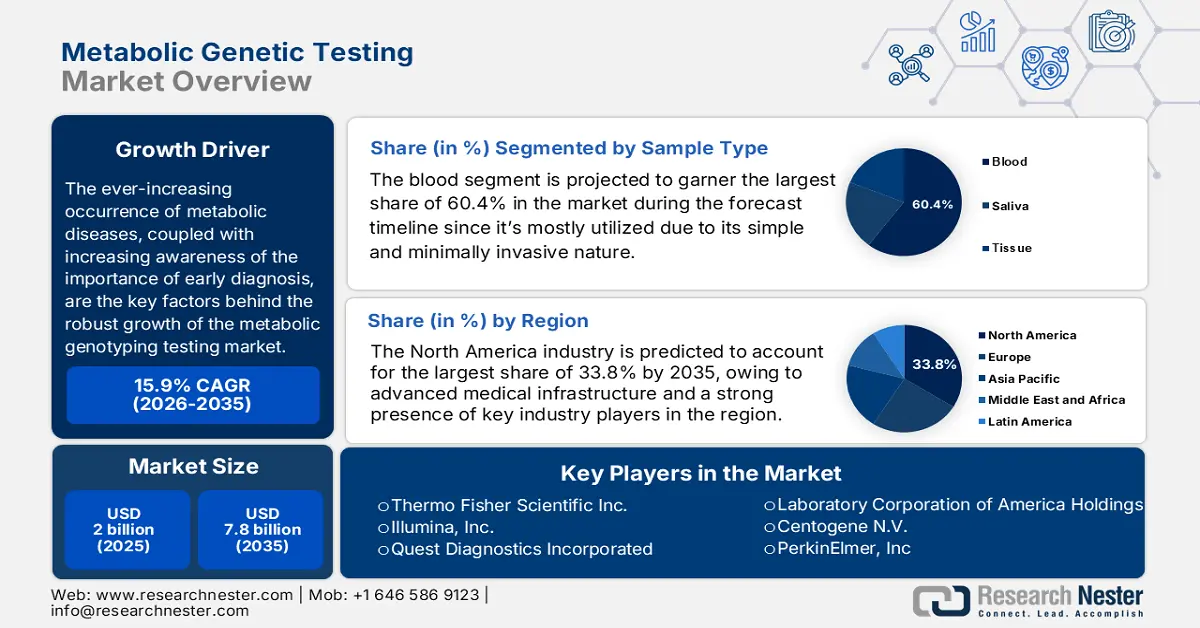Metabolic Genetic Testing Market Outlook:
Metabolic Genetic Testing Market size was valued at USD 2.0 billion in 2025 and is projected to reach USD 7.8 billion by the end of 2035, rising at a CAGR of 15.9% during the forecast period, i.e., 2026-2035. In 2026, the industry size of metabolic genetic testing is estimated at USD 2.3 billion.
The ever-increasing occurrence of metabolic diseases, coupled with increasing awareness of the importance of early diagnosis, are the key factors behind the robust growth of the market. As per an article published by NIH in March 2024, around one-fourth of the population in Europe and Latin America is affected, while China’s prevalence reached 15.5% in a year. Whereas metabolic syndrome now also affects children and adolescents globally 3% and 5%, with prevalence increasing with age and slightly higher rates in women in some ethnic groups, thereby positively impacting market expansion.
Furthermore, payers' pricing in this field is extremely influenced by several factors such as test complexity, clinical utility, reimbursement policies, and overall healthcare cost savings. Testifying to this, the government of Australia in July 2025 reported that the IEM Program in the country offers help to individuals with protein metabolic disorders, covering the cost of low-protein foods required for their prescribed diets from the healthcare provider. It also stated that the program provides monthly payments, which are currently USD 298.36 to support dietary needs and maintain health.


